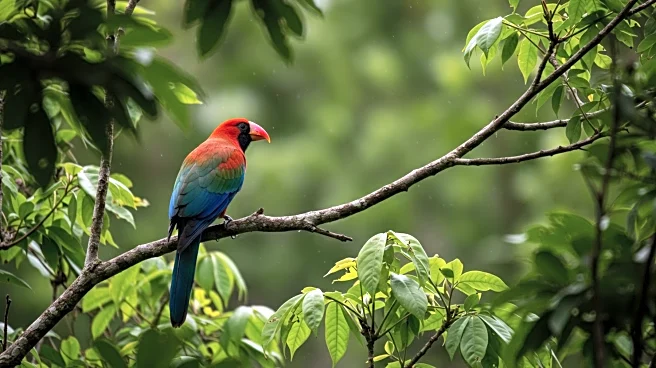What is the story about?
What's Happening?
A recent study published in Nature Ecology and Evolution highlights the impact of extreme heat on tropical bird populations. Researchers found that between 1950 and 2020, extreme heat events have reduced these populations by 25% to 38%. The study, led by James Watson from the University of Queensland, analyzed over 90,000 scientific observations and weather records to assess the effects of climate change on bird species in equatorial regions. The findings indicate that extreme heat is a primary driver of species loss, even in untouched forests, emphasizing the need to address greenhouse gas emissions.
Why It's Important?
The decline in tropical bird populations due to extreme heat underscores the broader impact of climate change on biodiversity. These birds play crucial roles in their ecosystems, such as pollination and seed dispersal. The loss of these species could disrupt ecological balance and lead to further environmental degradation. The study serves as a warning that climate change affects even the most protected areas, highlighting the urgency for global efforts to reduce emissions and mitigate climate impacts.
What's Next?
The study calls for immediate action to curb greenhouse gas emissions to prevent further biodiversity loss. Conservationists and policymakers may need to implement strategies to protect vulnerable species and habitats. This could involve enhancing protected areas, restoring degraded ecosystems, and promoting sustainable land use practices. The findings may also influence international climate negotiations and conservation policies.
Beyond the Headlines
The study reveals the complex interplay between climate change and biodiversity, highlighting ethical considerations in conservation efforts. It raises questions about human responsibility in preserving natural habitats and the moral imperative to act against climate change. The research also points to the need for interdisciplinary approaches, combining ecological science with social and economic strategies to address environmental challenges.

















